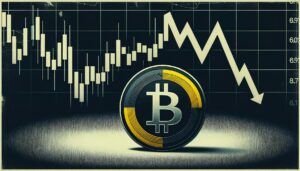Bitcoin Is The New New World

Freedom
The opportunity to reach one’s full potential
As the nobility of European society increasingly accrued more of the wealth of their nations, they gave rise to a new type of subject … the colonist. Still subject to the king’s laws, these pioneers put up the only capital most had to risk, their lives, with hopes of owning the one thing that was out of reach for so many in Europe … land.
Once you start down the Bitcoin rabbit hole, you eventually come to internalize the concept of “low time preference.” What could be more “low time preference” than sailing for weeks across an ocean, to a sometimes unknown destination, to start over from scratch? With the possibility to own land within sight, many took the risk to ensure a better future for themselves and their descendants.
Let’s not kid ourselves though, not every colonist who came over on any of those early expeditions became wealthy. Most of them died. The key words there being “most of them” … not all of them. And for the colonists who survived and thrived it was that thriving that attracted more colonists. So much so that by 1776, “… a third of all British commercial shipping vessels had been built in New England.”
So what happened?
This is a question that I was pondering as my wife and I were walking the streets of New Orleans. The answer I kept coming back to, as we walked streets with Spanish, French and English names, was simple. The French, Spanish and English kings never stepped foot in the new world. They never experienced firsthand how much freedom their subjects had in this new world. If they had experienced the new world, they would have understood that revolution was inevitable, just like Bitcoin.
Old World Freedom
In the old world, freedom was something you inherited.
In the old world, freedom was something that was granted to individuals by a monarch. That freedom was usually a title be it a baron, a count, or smoldering duke. These titles granted the holder different rights and privileges. Some titles allowed the holder to not pay taxes. Others allowed the holder a monopoly in a certain industry. But almost all titles gave the holder direct control over a certain area of land. The larger your title, the more wealth you and your family could accrue. The title was fiat.
In fact in 1807, decades after the American revolution, the Portuguese Royal Court moved from Lisbon to Rio de Janeiro for 13 years before moving back to Portugal. During the time that the court was located in Brazil, the Portuguese royal family collectively granted more titles of nobility, 145, more than it had granted in its past 300 years of existence in Portugal. The vast majority of titles granted went to those who had travelled with the court in 1807 or had fought the French in Portugal and somehow had made their way to Brazil. They even granted titles to British individuals. Only six were granted to Brazilians.
Additionally, once a family held one of these titles, it was hard to lose. It was passed down from generation to generation through marriage, usually to the oldest son. And since there were never enough titles to go around, there was always a plot to murder someone and inherit their title. You can only have a system that relies on murder for redistribution for so long before everyone is either plotting to murder someone or is actively being plotted against. That is a very unstable way to rule.
The old world power structures could never see value in, nor acknowledge the existence of, that freedom because they already had that freedom in the form of their titles. They only valued what it could extract from the labor of people to fund its non-stop wars of the old world. Sound familiar?
New World Freedom
In the new world, freedom was earned.
Far away from the power centers and palace intrigue of Europe, the colonists were able to organize into new power groups with their own means of wealth generation. And while they were based on the same principles of the old world, land and property rights, they were groups of men who would have never come close to the levels of some achieved in the new world. Hell, after the revolution, they wanted to make George Washington, one of the largest landowners in Virginia, King of America. He modestly settled for a city named after himself instead.
Despite still being subjects of the King of England, the colonists began to accrue their own wealth from the resources that the land provided, such as timber and fisheries in the north, and in the south, tobacco and cotton. These industries, while still subject to taxes and laws of the British empire, are from whence American power bases originated. And competition ensured that the most efficient producers cleared the market of underperforming participants. Nobody was granted the title of “Master of the Timber” or some nonsense like that. This was a much more efficient and stable way to rule.
As the colonists built up their industries, they were in a sense “stacking sats.” The king couldn’t take these industries from them even if he wanted to. All he could do was trade when times were good; tax when times were bad. But by the time the colonists were drafting the Declaration of Independence, they had done the math and decided that their stacks were large enough to challenge the notion that they were still subject to old world power structures of kings and titles. They had earned that freedom by transforming North America into a more efficient system of production and wealth distribution.
The counts and dukes could not exert privileges on the colonists. They could only enter as market participants competing for the same land and resources. Sure they may have had more capital coming with them from the old world but they had to part with some of it and buy the land from the colonists which in turn funded new enterprises by the newly-wealthy colonists.
In America, we opted for debt instead of titles thanks to Alexander Hamilton. To be clear this is an improvement to the system. Loans are unlimited. Jack Dorsey and Mark Zuckerberg don’t have to try to kill one another in order to inherit the title “The Duke of Social Medialandia.” But loans are just titles by another name. At the end of the day, someone “approves” your loan. How is this any different than a king granting you a title? There are just many kings you can appeal to for a title now, such as Bank of America, J.P. Morgan, Citi and more. However, the trick is that, after a certain amount of loans, no one expects these massive debts to be paid off; rather, the money is made in servicing the debt. So whoever can take on the most debt, ***cough*** American government ***cough***, de facto has the highest title.
Bitcoin Freedom
It took nearly 300 years from Columbus “discovering” the new world to the Americans challenging the old world power structuctures. They managed to build up enough production capability to fight a war that separated church from state but more importantly subject from king — two of the most powerful institutions of the old world.
It’s amazing what you can accomplish when you don’t have Twitter in your pocket…
or
Not bad for a bunch of guys with wooden teeth and no internet.
And yet here we are 2 ½ centuries later and Bitcoin has become the digital new world. It is a lot easier to get to than the physical new world, the “land” is just as pristine and cheap and there are no Indigenous people to displace and feel bad about 300 years later (although a lot of us early adopters may occupy that role soon). Those same freedoms and resources and opportunities to build new industries and form new power bases are there for the taking. Hopefully this time the new world finds a way to coexist with the old without the bloodshed.
This is a guest post by Ian Reis. Opinions expressed are entirely their own and do not necessarily reflect those of BTC Inc or Bitcoin Magazine.
Source link
#Bitcoin #World





